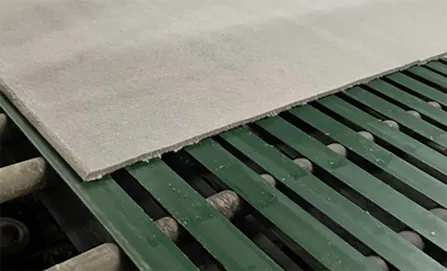- Afrikaans
- Albanian
- Amharic
- Arabic
- Armenian
- Azerbaijani
- Basque
- Belarusian
- Bengali
- Bosnian
- Bulgarian
- Catalan
- Cebuano
- Corsican
- Croatian
- Czech
- Danish
- Dutch
- English
- Esperanto
- Estonian
- French
- German
- Greek
- Hindi
- Indonesian
- irish
- Italian
- Japanese
- Korean
- Lao
- Malay
- Myanmar
- Norwegian
- Norwegian
- Polish
- Portuguese
- Romanian
- Russian
- Serbian
- Spanish
- Swedish
- Thai
- Turkish
- Ukrainian
- Uzbek
- Vietnamese
नवम्बर . 12, 2024 05:55 Back to list
what are mineral fiber ceiling tiles made of
What Are Mineral Fiber Ceiling Tiles Made Of?
Mineral fiber ceiling tiles, often used in commercial and residential spaces, are popular for their acoustic properties, aesthetic appeal, and fire-resistant characteristics. Understanding the composition of these tiles is essential for anyone considering them for their projects.
Composition of Mineral Fiber Ceiling Tiles
Mineral fiber ceiling tiles are primarily made from a blend of natural and synthetic materials. The main components include
1. Mineral Wool The core material used in most mineral fiber tiles is mineral wool, which is derived from basalt rock or slag (a byproduct of smelting). Mineral wool fibers are formed through a process of heating and spinning the raw materials, resulting in fine strands that have excellent insulation properties.
2. Gypsum Gypsum is often added to enhance fire resistance. It is a naturally occurring mineral composed of calcium sulfate dihydrate. Gypsum helps improve the durability of the tiles and contributes to their overall acoustic performance.
3. Fiberglass In some cases, fiberglass may be included in the mix. Fiberglass is made from fine glass fibers and is known for its strength, lightweight properties, and resistance to moisture. Adding fiberglass can enhance the tile's structural integrity and contribute positively to its thermal insulation properties.
4. Additives and Binders Various additives are used in mineral fiber tiles to enhance performance characteristics. These may include starches, latex, and other binders that help hold the fibers together, improve mold and mildew resistance, and increase the tiles’ durability. These additives are crucial for ensuring that the tiles maintain their shape and performance over time, especially in high-humidity environments.
5. Surface Coating Many mineral fiber ceiling tiles undergo a finishing process, which often involves a coating that provides a smooth, clean surface. This coating can also add aesthetic value by allowing for different colors and finishes. The surface treatment can also enhance the tiles’ resistance to staining and moisture.
what are mineral fiber ceiling tiles made of

Benefits of Mineral Fiber Ceiling Tiles
Understanding the composition of mineral fiber ceiling tiles reveals why they are a popular choice in many applications.
- Acoustic Performance The porous nature of mineral fibers allows these tiles to effectively absorb sound, reducing noise levels in busy environments. This makes them a favorite in spaces where acoustic comfort is essential, such as offices, schools, and hospitals.
- Fire Resistance The inclusion of gypsum and mineral wool provides excellent fire resistance. Mineral fiber ceiling tiles can offer significant safety in case of fire as they do not burn easily and can help limit the spread of flames.
- Moisture Resistance Many mineral fiber ceiling tiles are designed to be moisture-resistant, making them suitable for areas like kitchens, bathrooms, or basements where humidity levels may be elevated.
- Environmental Considerations Several manufacturers produce mineral fiber ceiling tiles with sustainability in mind. They may use recycled materials in their production process and design them to be recyclable at the end of their lifespan.
Conclusion
Mineral fiber ceiling tiles provide an excellent combination of sound absorption, fire resistance, and aesthetic flexibility, making them a favored choice for various commercial and residential applications. Their composition, primarily consisting of mineral wool, gypsum, and other additives, contributes to their unique properties, offering both functionality and visual appeal. Whether renovating an office space or embarking on new construction, understanding what mineral fiber ceiling tiles are made of can help you make informed decisions that enhance the overall environment of your project.
-
Transform Interiors with PVC Gypsum Ceiling: A Stylish, Durable, and Moisture-Resistant SolutionNewsMay.19,2025
-
The Smart Interior Upgrade: Discover the Durability and Versatility of Gypsum Ceiling Access Panel SolutionsNewsMay.19,2025
-
The Smart Choice for Interior Design: Discover the Value of PVC Gypsum Ceiling SolutionsNewsMay.19,2025
-
Mineral Fiber Ceiling Tiles: The Smart Blend of Performance and AestheticsNewsMay.19,2025
-
Mineral Fiber Ceiling Tiles: The Superior Choice Over Gypsum for Sound and Fire SafetyNewsMay.19,2025
-
Mineral Fiber Ceiling Tiles: Eco-Friendly Strength and Style for Every CeilingNewsMay.19,2025







